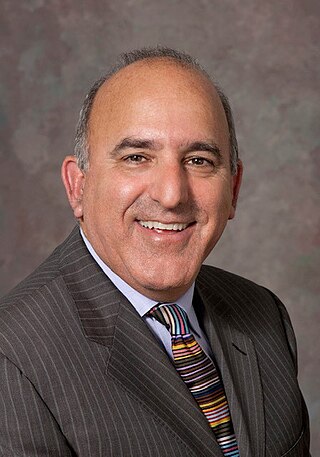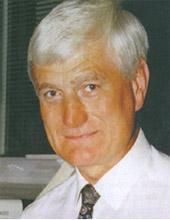Related Research Articles

Sarah Hrdy is an American anthropologist and primatologist who has made major contributions to evolutionary psychology and sociobiology. She is considered "a highly recognized pioneer in modernizing our understanding of the evolutionary basis of female behavior in both nonhuman and human primates". In 2013, Hrdy received a Lifetime Career Award for Distinguished Scientific Contribution from the Human Behavior and Evolution Society.
Emmy E. Werner was an American developmental psychologist known for her research on risk and resilience in children.
Jerome Kagan was an American psychologist, who was the Daniel and Amy Starch Research Professor of Psychology at Harvard University, as well as, co-faculty at the New England Complex Systems Institute. He was one of the key pioneers of developmental psychology.
Lewis A. Leavitt is medical director of the Waisman Center on Human Development at the University of Wisconsin–Madison and Professor of Pediatrics at the University of Wisconsin School of Medicine. Leavitt graduated from the University of Chicago School of Medicine and is the husband of medical historian Judith Walzer Leavitt.
Daniel N. Stern was a prominent American developmental psychiatrist and psychoanalyst, specializing in infant development, on which he had written a number of books — most notably The Interpersonal World of the Infant (1985).

Kathy Hirsh-Pasek is the Stanley and Debra Lefkowitz Professor of Psychology at Temple University in Philadelphia, where she directs the Temple University Infant Language Laboratory. She is the author of 14 books and over 200 publications on early childhood and infant development, with a specialty in language and literacy, and playful learning.
Anne Fernald is an American psychologist. She serves as the Josephine Knotts Knowles Professor in Human Biology at Stanford University and has been described as "the leading researcher in infant-directed speech".
The differential susceptibility theory proposed by Jay Belsky is another interpretation of psychological findings that are usually discussed according to the diathesis-stress model. Both models suggest that people's development and emotional affect are differentially affected by experiences or qualities of the environment. Where the Diathesis-stress model suggests a group that is sensitive to negative environments only, the differential susceptibility hypothesis suggests a group that is sensitive to both negative and positive environments. A third model, the vantage-sensitivity model, suggests a group that is sensitive to positive environments only. All three models may be considered complementary, and have been combined into a general environmental sensitivity framework.
Richard N. Aslin is an American psychologist. He is currently a Senior Scientist at Haskins Laboratories and professor at Yale University. Until December, 2016, Dr. Aslin was William R. Kenan Professor of Brain & Cognitive Sciences and Center for Visual Sciences at the University of Rochester. During his time in Rochester, he was also Director of the Rochester Center for Brain Imaging and the Rochester Baby Lab. He had worked at the university for over thirty years, until he resigned in protest of the university's handling of a sexual harassment complaint about a junior member of his department.
Studies have found that the father is a child's preferred attachment figure in approximately 5–20% of cases. Fathers and mothers may react differently to the same behaviour in an infant, and the infant may react to the parents' behaviour differently depending on which parent performs it.
Frank Tardrew Falkner was a British-born American biologist and pediatrician known for his expertise on child development. After graduating from the University of Cambridge with a medical degree in 1945, he worked at Great Ormond Street Hospital in London, England, prior to joining the faculty of the University of Louisville School of Medicine in January 1956. He remained on the faculty of the University of Louisville until 1968, initially serving as an assistant professor of child health there, and eventually rising to chair their Department of Pediatrics. While on the faculty of this university, he started the Louisville Twin Study in 1957. He joined the National Institute of Child Health and Human Development as program director, later becoming an associate director there. In 1970, he became director of the Fels Longitudinal Study of Physical Growth and Development at the Fels Research Institute. He then served on the faculties of Georgetown University, the University of Cincinnati, and the University of Michigan before joining the faculty of the University of California, Berkeley and University of California, San Francisco in 1981. He was elected to the Institute of Medicine of the National Academy of Sciences in 1985. His positions within the University of California system included serving as chair of the Department of Social and Administrative Health Sciences from 1983 to 1987 and of the Maternal and Child Health Program from 1981 to 1989, both at the University of California, Berkeley. He also held a joint appointment in the department of pediatrics in the University of California, Berkeley, and helped to create the Joint Health and Medical Sciences Program connecting the two campuses. He died in his sleep on August 21, 2003, at his home in Berkeley, California, after suffering from prostate cancer.

Marinus H. "Rien" van IJzendoorn is professor of human development and one of the co-leaders of Generation R at the Erasmus University Rotterdam. His work has focussed on the social, psychological, and neurobiological determinants of parenting and child development, with special emphasis on attachment, emotion regulation, differential susceptibility hypothesis, and child maltreatment.

Intersex people in the United States have some of the same rights as other people, but with significant gaps, particularly in protection from non-consensual cosmetic medical interventions and violence, and protection from discrimination. Actions by intersex civil society organizations aim to eliminate harmful practices, promote social acceptance, and equality. In recent years, intersex activists have also secured some forms of legal recognition. Since April 11, 2022 US Passports give the sex/gender options of male, female and X by self determination.
Margaret R. Burchinal is a quantitative psychologist and statistician known for her research on child care. She is senior research scientist and director of the Data Management and Analysis Center of the Frank Porter Graham Child Development Institute of the University of North Carolina at Chapel Hill.

Eleanor Jack Gibson was an American psychologist who focused on reading development and perceptual learning in infants. Gibson began her career at Smith College as an instructor in 1932, publishing her first works on research conducted as an undergraduate student. Gibson was able to circumvent the many obstacles she faced due to the Great Depression and gender discrimination, by finding research opportunities that she could meld with her own interests. Gibson, with her husband James J. Gibson, created the Gibsonian ecological theory of development, which emphasized how important perception was because it allows humans to adapt to their environments. Perhaps her most well-known contribution to psychology was the "visual cliff," which studied depth perception in both human and animal species, leading to a new understanding of perceptual development in infants. Gibson was elected to the National Academy of Sciences in 1971, the National Academy of Education in 1972, and to the American Academy of Arts and Sciences in 1977. In 1992, she was awarded the National Medal of Science.
Lisa Feigenson is Professor of Psychological and Brain Sciences at Johns Hopkins University and co-director of the Johns Hopkins University Laboratory for Child Development. Feigenson is known for her research on the development of numerical abilities, working memory, and early learning. She has served on the editorial board of Cognition and the Journal of Experimental Psychology: General.
Deborah Lowe Vandell is a developmental psychologist and an expert on the impact of early child care on children's developmental trajectories and the benefits of children's participation in afterschool programs and other organized activities. She is the Founding Dean of the University of California, Irvine School of Education and Chancellor Professor of Education and Psychology.
The Department of Human Development was a multidisciplinary department at Cornell University from 1925 to 2021. During its lifetime, the Department led research on developmental science to simultaneously advance theory and improve life. The department emphasized an ecological perspective of human development that examined social, cultural, biological, and psychological processes and mechanisms of growth and change throughout the life cycle and across diverse contexts. Many significant social science scholars of the 20th and 21st century, including Urie Bronfenbrenner and Kurt Lewin, were among the department's faculty. A number of the department's graduate students became significant figures in the social sciences with their work tending toward interdisciplinary and cross-disciplinary approaches.

Nathan Kuppermann is an American pediatrician and emergency physician who is a member of the National Academy of Medicine. He serves as a distinguished professor in the Departments of Emergency Medicine and Pediatrics at the UC Davis School of Medicine, educating future physicians about the fields he is adept in. Additionally, he holds the esteemed Bo Tomas Brofeldt Endowed Chair in emergency medicine. Dr. Kuppermann has made many notable contributions as the founding chair of the Pediatric Emergency Care Applied Research Network (PECARN), and subsequently as the chair of the global Pediatric Emergency Research Network (PERN). His contributions to pediatric emergency research and care highlights his dedication to improving the well-being of young patients across the world.

Henry Lewis Halliday was a British-Irish paediatrician and neonatologist. In 2021, Halliday was awarded the James Spence Medal for research into neonatology, for coordinating two of the largest neonatal multicentre trials for prevention and treatment of a number of neonatal respiratory illnesses and for a breakthrough in the development of a new lung surfactant that brought relief to very small babies suffering from infant respiratory distress syndrome (RDS).
References
- ↑ Belsky, Jay (1976). The short term stability of mother-infant interaction within and across two settings: home and laboratory. Cornell University, Sept. pp. ii.
- ↑ "Jay Belsky". Human Development Graduate Group. 2017-04-25. Retrieved 2017-09-28.
- 1 2 "Jay Belsky". WAIMH 2018. Retrieved 2017-09-28.
- ↑ Sweeney, Jennifer Foote (2001-04-26). "Jay Belsky doesn't play well with others". Salon. Retrieved 2017-09-28.
- ↑ Shell, Ellen Ruppel (1988-08-01). "Babes in Day Care". The Atlantic. Retrieved 2017-09-28.
- ↑ Collins, Glenn (1987-11-25). "Day Care for Infants: Debate Turns to Long-Term Effects". The New York Times. ISSN 0362-4331 . Retrieved 2017-09-28.